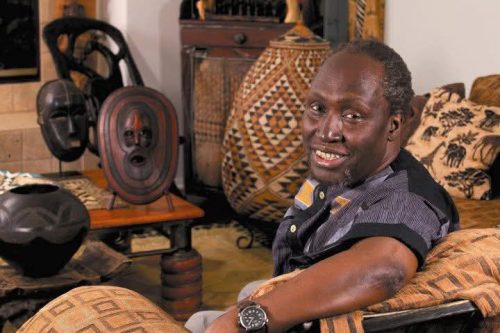The world is mourning the loss of one of Africa’s greatest literary minds. Renowned Kenyan author and academic Ngũgĩ wa Thiong’o has died at the age of 87. His daughter, Wanjiku wa Ngũgĩ, confirmed his passing in Atlanta, Georgia, through a heartfelt message on social media.
“It is with a heavy heart that we announce the passing of our dad… He lived a full life, fought a good fight and as was his last wish, let’s celebrate his life and work,” she wrote.
Ngũgĩ, who was born James Ngugi on January 5, 1938, was a revolutionary figure in African literature. He began his career writing in English, producing landmark works like Weep Not, Child (1964), The River Between (1965), and A Grain of Wheat (1967). However, as his political consciousness deepened, he renounced English and adopted his native Gikuyu language as a form of resistance against colonial and neo-colonial oppression. He also discarded his English name, embracing Ngũgĩ wa Thiong’o as a symbol of cultural and intellectual liberation.
Ngũgĩ’s writings were deeply political, exploring themes of colonialism, capitalism, inequality, dictatorship, and the enduring struggles of ordinary people. His works—especially Petals of Blood (1977), Devil on the Cross (1982), and Matigari (1989)—became rallying cries for justice and reform in Kenya and across Africa.
His 2006 epic Wizard of the Crow and the acclaimed 2020 work The Perfect Nine showed that his creativity and commitment to the African story remained strong even in his later years. Beyond novels, Ngũgĩ also published celebrated collections like This Time Tomorrow, Secret Lives, Minutes of Glory, and To Stir the Heart.
Ngũgĩ was not only a writer but a Marxist intellectual, freedom fighter, and cultural icon whose influence transcended continents. His academic career took him to top universities around the world, yet he remained grounded in the causes that shaped his life—justice, language liberation, and African identity.
Following the news of his passing, tributes poured in from across the globe. His son, author and professor Mukoma wa Ngũgĩ, shared a moving post:
“It tears my heart to say that my father, Ngũgĩ wa Thiong’o, passed away earlier today. I am me because of him in so many ways, as his child, scholar and writer. I love him – I am not sure what tomorrow will bring without him here. I think that is all I have to say for now.”
President William Ruto also paid glowing tribute to the literary icon:
“I have learnt with sadness about the death of Kenya’s beloved teacher, writer, playwright, and public intellectual, Prof Ngũgĩ wa Thiong’o. The towering giant of Kenyan letters has put down his pen for the final time.
Always courageous, he made an indelible impact on how we think about our independence, social justice as well as the uses and abuses of political and economic power.
In his bold and creative career, Prof Thiong’o showed us how to make contributions that cannot be ignored and speak in ways that both supporters and opponents cannot ignore.
His patriotism is undeniable, and even those who disagree with him will admit that Prof Thiong’o’s discourse always sprang forth from a deep and earnest quest for truth and understanding, devoid of malice, hatred or contempt.
Many Kenyans cannot remember a time when we were not united in the hope that Prof Thiong’o would finally receive the Nobel Prize for Literature, which we all felt he more than deserved.
Be that as it may, he will always remain the champion of literary emancipation and innovation in our hearts and minds. May his family find peace and comfort in this period of mourning, and may Prof Thiong’o rest in eternal peace.”
As Kenyans, and as Africans, we mourn the loss of a legend—but we also celebrate a life lived with purpose, courage, and intellect. Ngũgĩ wa Thiong’o may be gone, but his words live on—bold, revolutionary, and forever rooted in the soil of our stories.
Rest in peace, Ngũgĩ wa Thiong’o.
Your pen sparked revolutions. Your legacy is eternal.



